
- Home
- India
- World
- Premium
- THE FEDERAL SPECIAL
- Analysis
- States
- Perspective
- Videos
- Sports
- Education
- Entertainment
- Elections
- Features
- Health
- Business
- Series
- In memoriam: Sheikh Mujibur Rahman
- Bishnoi's Men
- NEET TANGLE
- Economy Series
- Earth Day
- Kashmir’s Frozen Turbulence
- India@75
- The legend of Ramjanmabhoomi
- Liberalisation@30
- How to tame a dragon
- Celebrating biodiversity
- Farm Matters
- 50 days of solitude
- Bringing Migrants Home
- Budget 2020
- Jharkhand Votes
- The Federal Investigates
- The Federal Impact
- Vanishing Sand
- Gandhi @ 150
- Andhra Today
- Field report
- Operation Gulmarg
- Pandemic @1 Mn in India
- The Federal Year-End
- The Zero Year
- Science
- Brand studio
- Newsletter
- Elections 2024
- Events
- Home
- IndiaIndia
- World
- Analysis
- StatesStates
- PerspectivePerspective
- VideosVideos
- Sports
- Education
- Entertainment
- ElectionsElections
- Features
- Health
- BusinessBusiness
- Premium
- Loading...
Premium - Events
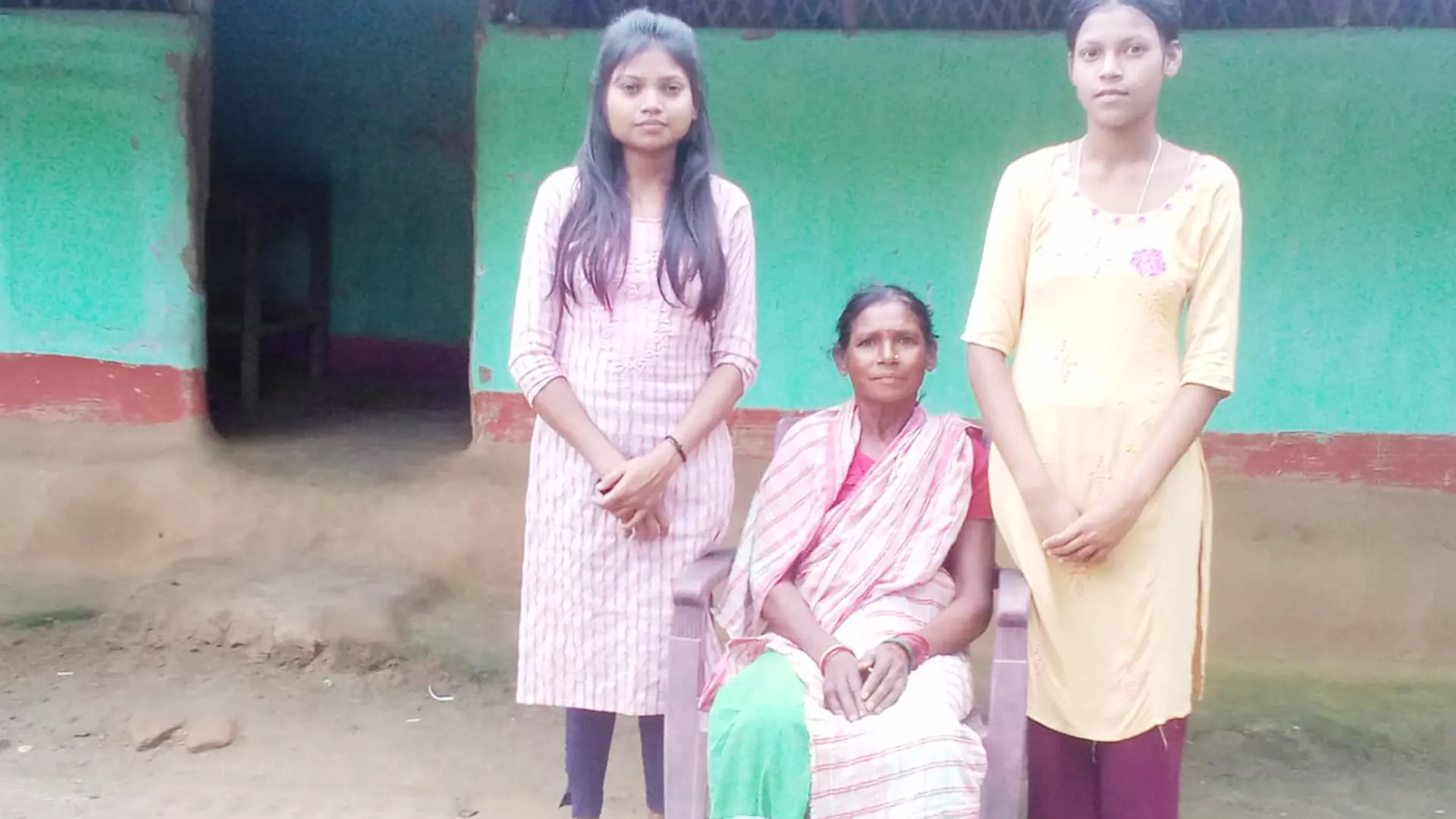
Growing up in one of Assam’s verdant tea plantations, Pinky Tanti always dreamt of becoming a teacher. The 23-year-old—belonging to the tea tribe or Adivasi community—studied hard. Her mother worked harder as a tea garden worker in Beesakopie tea estate in Tinsukia district to provide for her daughter’s education after her husband abandoned the family.Tanti was close to fulfilling...
Growing up in one of Assam’s verdant tea plantations, Pinky Tanti always dreamt of becoming a teacher. The 23-year-old—belonging to the tea tribe or Adivasi community—studied hard. Her mother worked harder as a tea garden worker in Beesakopie tea estate in Tinsukia district to provide for her daughter’s education after her husband abandoned the family.
Tanti was close to fulfilling her long-cherished dream after she joined a college. But it came to an abrupt end. In 2017, Tanti, then pursuing her first year of graduation from Doomdooma College, Tinsukia, had to put a stop to her education.
The hard work of the mother-daughter duo failed in front of their grinding poverty. Her mother’s income—Rs 205 per day now (it was less previously)—was not enough to run the household of three members, including Tanti’s maternal grandmother.
The regret of not completing her education was palpable in her voice when she told The Federal that despite her best efforts she could not finish her education. “My maa (mother) told me to continue my education. She said she would take loans to fund my education. I stopped her from taking loans. I did not want us to be in debt as we hardly had money to eat two proper meals.” Tanti rued that neither the government nor the tea estate management helped her in pursuing her education.
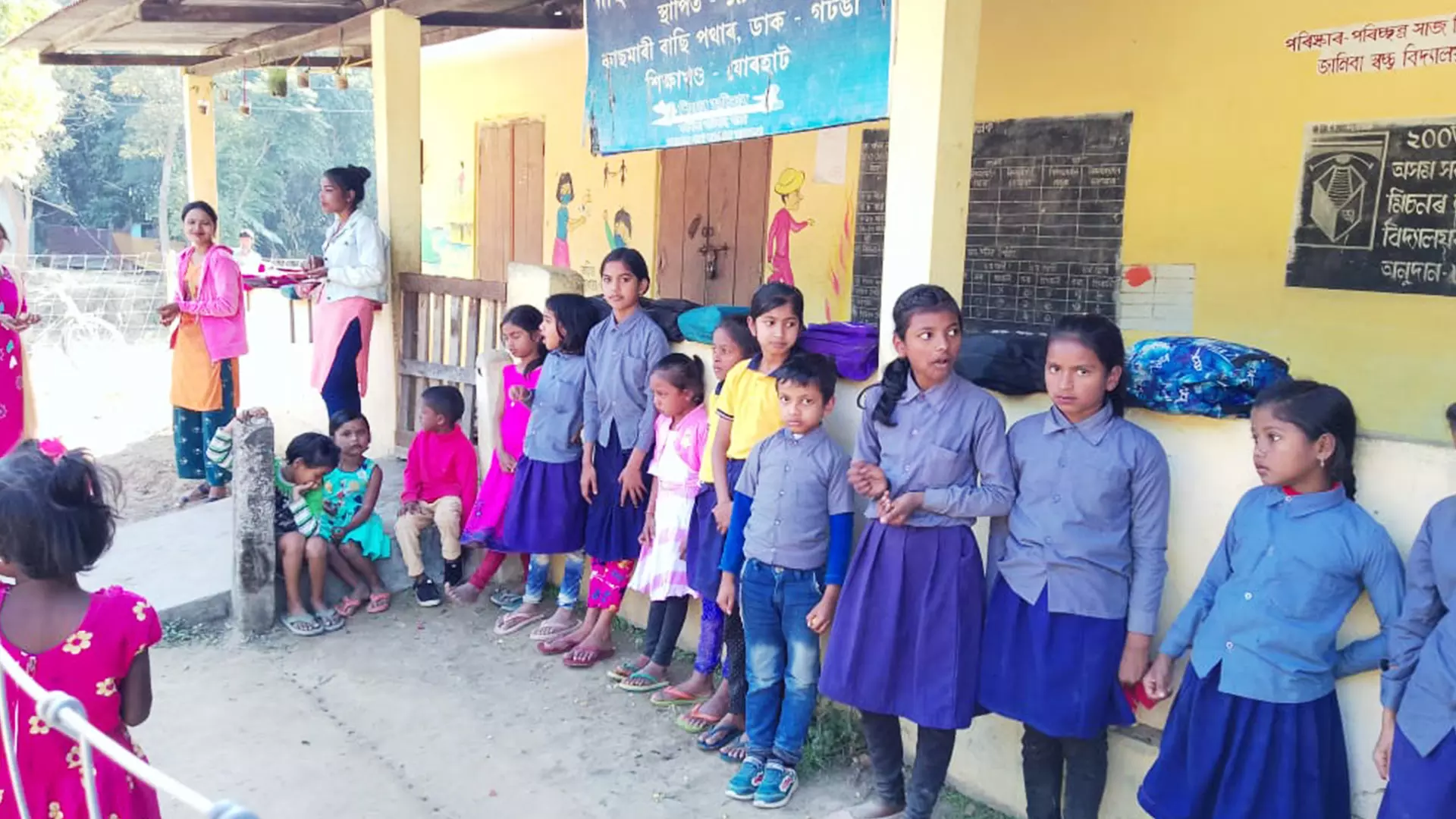
Children of Basipathar Lower Primary School, Kachamari, Jorhat district.
In the past six years, she had tried twice to get back in touch with the administration of her former alma mater to allow her to resume her education but could not do so. Today, Tanti works with a local NGO and motivates parents and children of the tea garden to pursue formal education. She earns Rs 1,000 a month.
Tanti’s story is similar to the stories of several girls from various tea plantations of Assam—located in Jorhat, Lakhimpur and Tinsukia districts—with whom The Federal spoke. They all have been forced to drop out of their schools as their families can’t afford to pay for their education. There are around 950 tea gardens in Assam.
Most of these female dropouts end up working as tea garden labourers—some of them are minors. “It is a cycle. Grandmother, mother and daughter sometimes work together in the same bagaan (tea garden). They all pluck tea leaves under the sun for the whole day to earn Rs 205 (sometimes even less),” Anjali Karmakar, an Adivasi girl, from Koilamari tea estate in Lakhimpur district told said.
The 19-year-old had to put a one-year pause on her studies due to “financial constraints”. Now, she is pursuing her graduation from Lakhimpur Kendriya Mahavidyalaya and doing a part-time job to fund her education.
Assam fares poorly when it comes to girls’ education. The northeastern state ranks fifth for out-of-school girls across India. According to the latest National Family Health Survey—5, only 29.6 per cent of women aged 15-49 years have 10 or more years of schooling in Assam. Various studies have shown that despite tea production being the major economy of Assam, the tea garden areas remain improvised. The inhabitants of the tea gardens, the workers who are Adivasis, have no access to health, education, electricity, housing facilities and motorable roads. The women/girls bear the maximum brunt because of their gender in a patriarchal society like India.
A 2015 study by Save the Children, an NGO, found that 50 per cent of children in tea gardens are school dropouts.
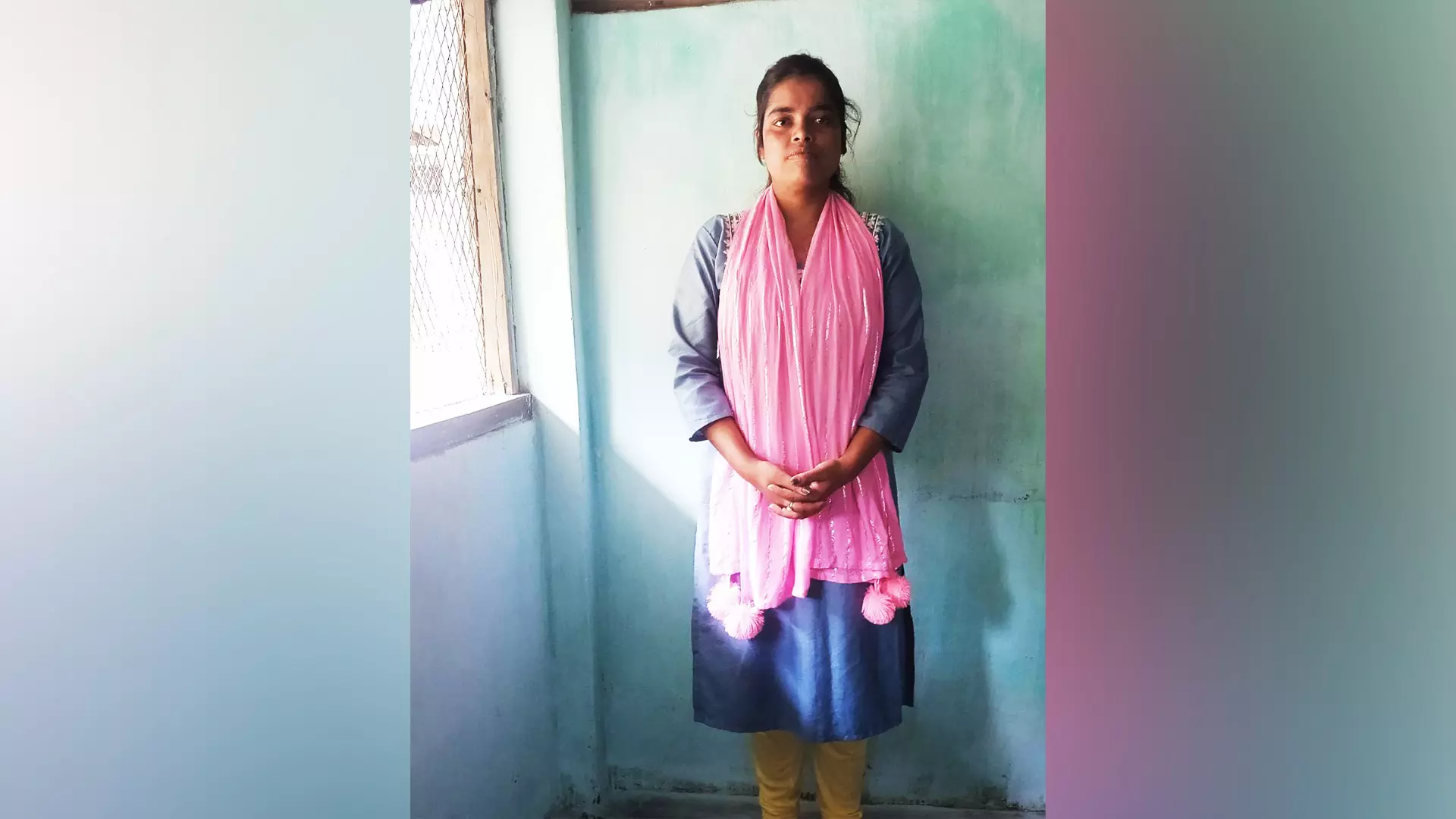
Pinky Tanti from Beesakopie tea estate in Tinsukia, Assam wants to finish her graduation.
Pinky Tanti from Beesakopie tea estate in Tinsukia, Assam want to finish her graduation.The primary reasons for Adivasi girls being denied education or having high drop-out rates among them are financial problems, lack of schools in the neighbourhood (especially after primary level), patriarchy, household chores and demand for child labour. In fact, 50 per cent of the workforce in tea plantations are women. The tea tribe population in Assam is around 70 lakhs or nearly 20 per cent of Assam’s 3.12 crore inhabitants. An estimated 25 lakh children live in the tea gardens of Assam.
The tea plantation workers were brought to Assam by the Britishers to work as indentured labourers during the latter part of the 19th century. Their origins are traced to Jharkhand, Odisha, Chhattisgarh, West Bengal and Andhra Pradesh. The community as a whole is also known as Adivasi—consisting of Munda, Santhal, Gonds, Kurukh, Bhumii and other tribes. It is a multiethnic and multicultural group of people from various tribes and castes. The tea community people fall under the Other Backward Classes in Assam and a demand to recognise them as Schedule Tribe is yet to be fulfilled by the government.
Biswajit Payeng, a teacher working in Basipathar Lower Primary School, Kachamari, Jorhat district, told The Federal that at least half of his students belong to the tea garden community. The school is located close to Gatoonga tea estate where hundreds of Adivasi families live and work. There are 55 students enrolled in the school who are studying from Class 1 to Class 5.
The 35-year-old teacher says the lack of awareness among the Adivasi people about the importance of education is a big hurdle for their children to attend classes. “Here attendance of pupils is irregular. Many of the school kids work as child labourers or look after their homes and younger siblings when their parents go to work in the baagan. Most of them are slow learners with low reading ability and numerical skills,” informs Payeng.
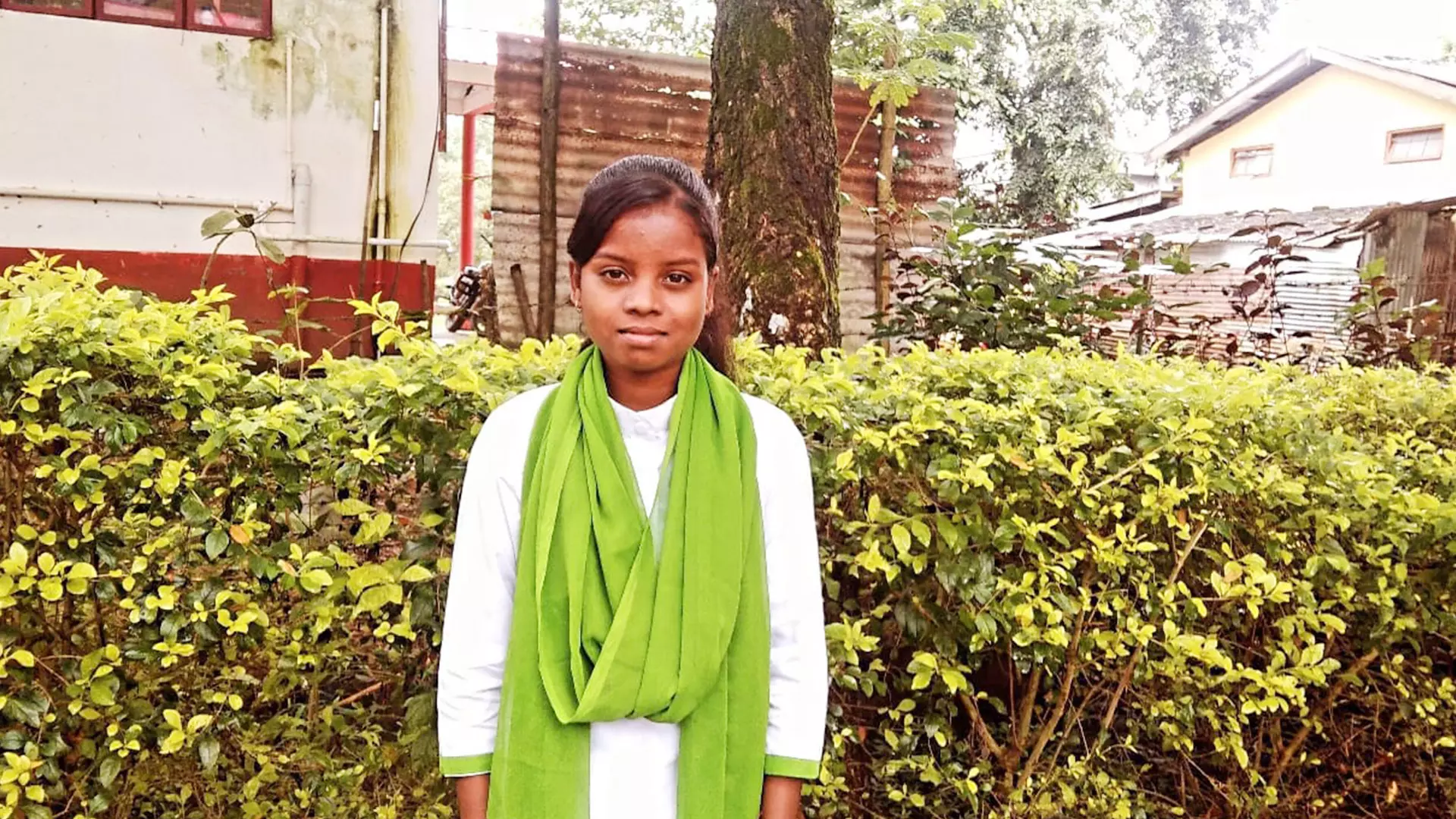
Anjali Karmakar poses for The Federal.
Payeng’s struggle, he adds, is not limited to motivating children to attend their classes regularly. The resources to run the government school are scarce. Along with Payeng, there is one more teacher and two cooks to prepare midday meals for the children. The Assamese (official language of Assam) medium school is housed in an old and dilapidated building with two rooms for five classes. “The rooms have been further partitioned into smaller spaces to accommodate children of various grades. It is not easy for two teachers to attend to children of various classes and impart lessons. However, we are trying our best to help children to read and write,” he says.
In its 2015 report, the Assam State Commission for Protection of Child Rights (ASCPCR) stated that at least 80 per cent of the state’s tea gardens have been defying the Right to Education (RTE) Act. During the survey by the ASCPCR, it was found that the majority of children in the tea gardens are engaged in plucking leaves or they work in factories and thus they do not go to school.
Those who go to school had to travel long distances as neighbourhood schools post-primary level are non-existent. The lower primary schools located in tea gardens lack basic infrastructure. All these reasons deter children from continuing with their studies added the report. The high dropout rate is stated to be behind rising cases of child trafficking and child marriage in tea garden areas.
“Denial of education for tea garden children is a clear violation of the RTE Act. The 2009 RTE Act provides free and compulsory elementary education to children between the age group of 6 years to 14 years. The government should take immediate steps to rectify the historic wrongdoings,” Nagasimha Rao, an RTE activist from Karnataka said.
In April, the Assam government provincialised 419 schools managed by the tea gardens in the state. Announcing the decision, Assam education minister Ranoj Pegu said, “Following the historic cabinet decision, the Assam government has provincialised 419 tea garden-managed schools. These schools will now receive mid-day meals, uniforms, free textbooks and government teachers.”
Last year, the Assam government decided to establish 119 ‘model schools’ offering free education to children up to Class 10 in various tea gardens. Earlier, children from tea gardens had to travel several kilometres to pursue higher education as only primary schools conducted classes in their vicinity.
Twenty-six-year-old Amrita Pradhani knows well the difficulty of pursuing an education for children of tea gardens. Like Tanti, Pradhani grew up in Beesakopie tea estate in Tinsukia district. After finishing her eighth standard, Pradhani left her education joining hundreds of dropouts in the tea gardens of Assam. "I left education due to financial problems at home," Pradhani said.
Destiny, however, has something else stored for her. In 2021, as a 24-year-old, Pradhani went back to school and enrolled herself as a student in class 9. Now, she is studying at Doomdooma College in Tinsukia as a first-year higher secondary student. Pradhani says her "second chance" to finish her education has been made possible by Purva Bharati Educational Trust (PBET), an Assam-based NGO working for girls' education in various tea gardens.
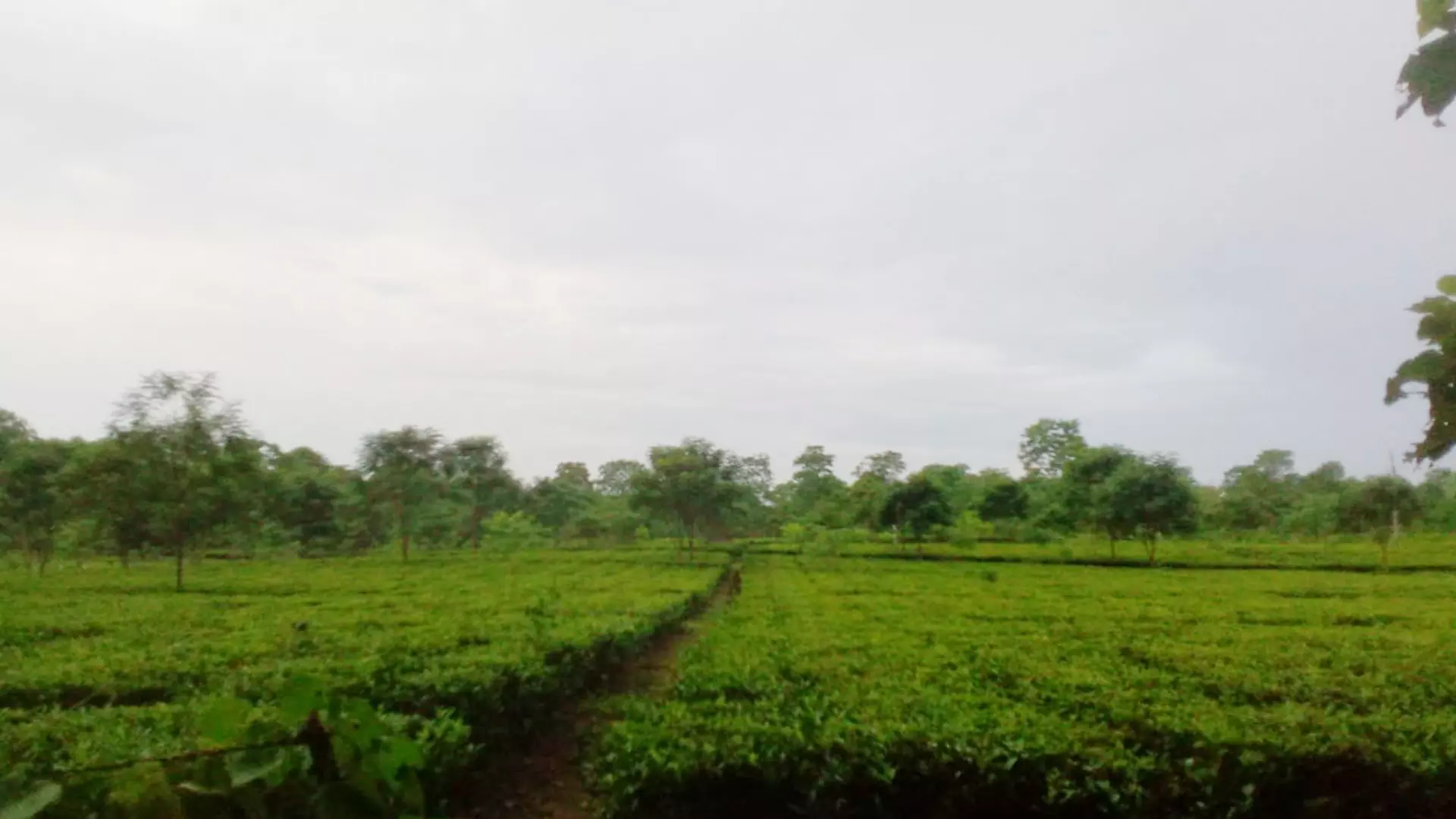
A view of Beesakopie tea estate in Tinsukia district.
A lot of her friends are now working as tea garden workers as they could not finish their education. “Some got married. They have children too,” adds Pradhani. The 26-year-old says that there is no electricity or water supply at her home. Pradhani rues the fact that there is no healthcare centre close to the tea garden. “My mother is supporting the whole family. She works in the tea garden. My father is bedridden. We have to travel several kilometres by bus to visit a hospital.”
Currently, youths from various tea plantations are running a campaign—‘Hamre Parhboi Shiksha Hamar Adhikar Heke’. The Adivasi title of the drive roughly translates to ‘We will study and education is our right’.
The education initiative is backed by PBET. Some of the main demands of the campaign are:
1) Formulate and take necessary steps to implement a special school education policy for tea garden areas.
2) Improve the infrastructure of schools with the provision of an adequate school building, separate toilets for students as per gender and a clean kitchen for midday meals.
3) Include Adivasi history, language, culture, festivals, games, lives of the tea community and progressive and non-discriminatory tradition in the state curriculum framework.
4) Appointment of qualified teachers from the community in schools.
5) Increase budget allocation for schools.
6) Provide training for teachers working in schools run by the tea garden management.

